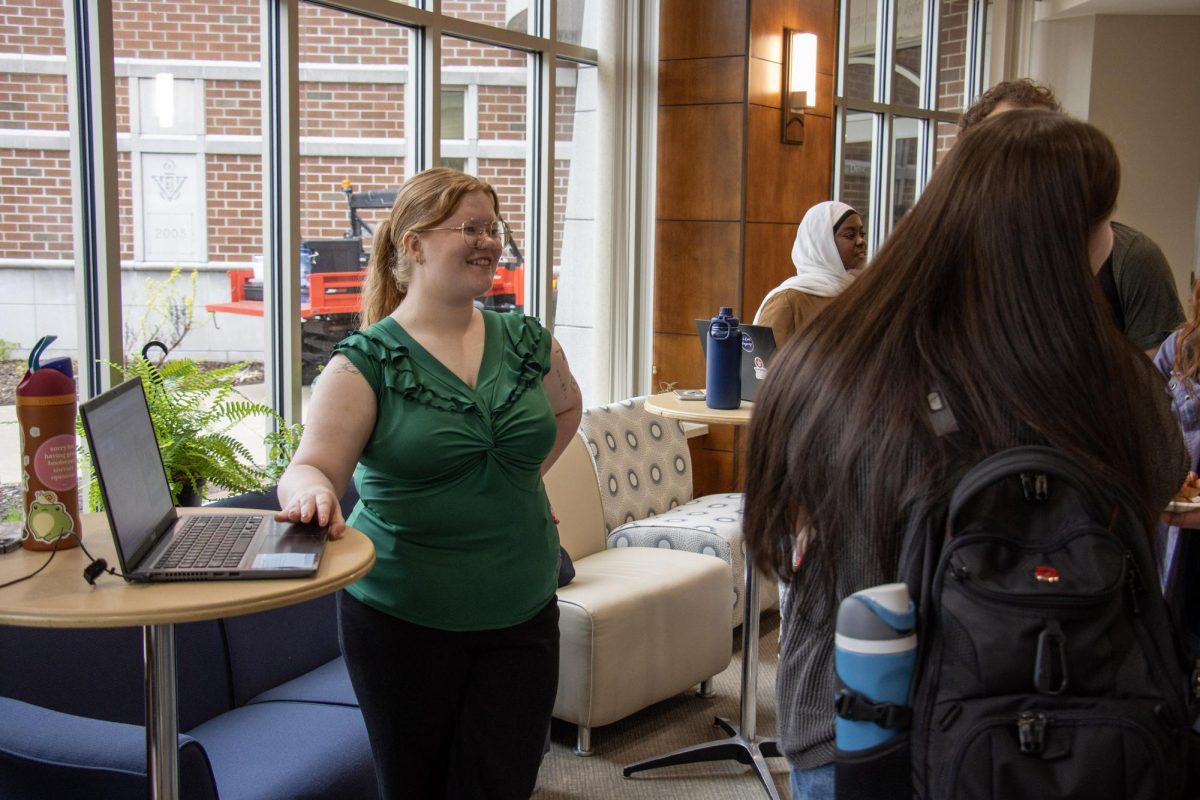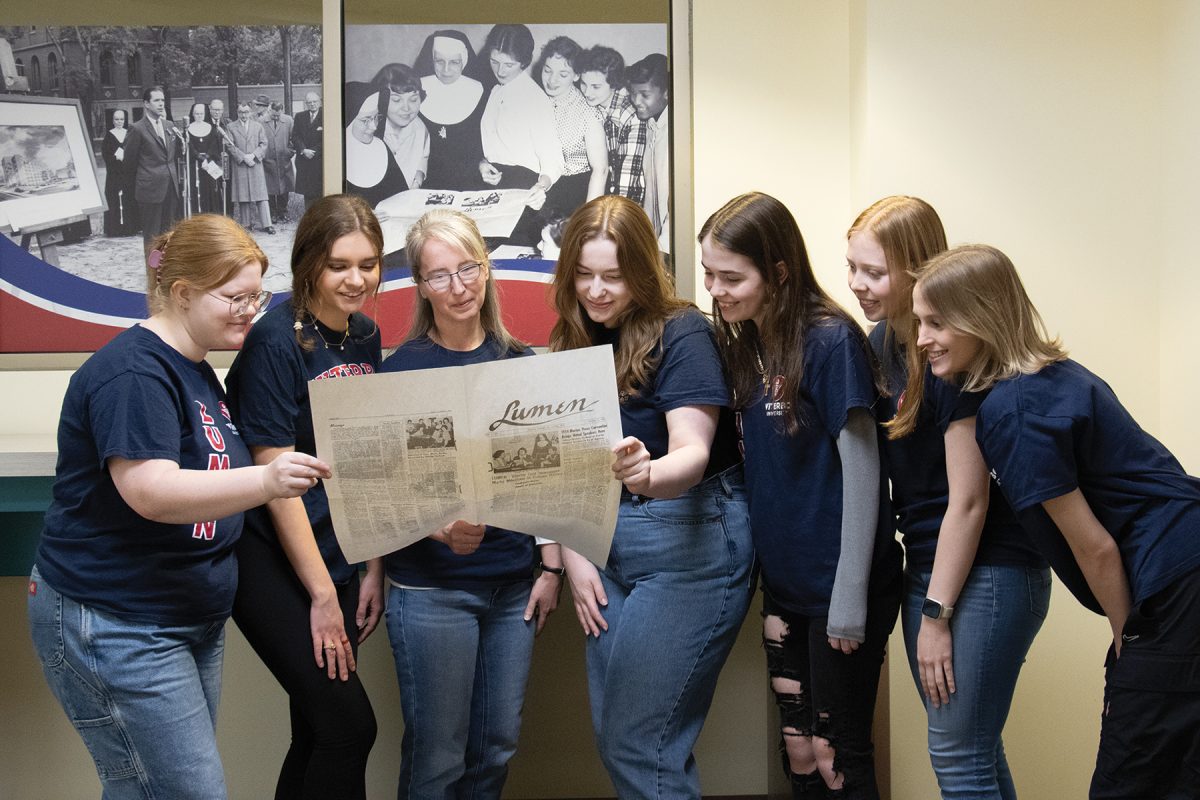The Trojan Horse affair and danger of religious phobia in public high schools
March 28, 2022
Here’s the cut and dry version. In 2013, an unsigned, nondescript, one-page document was delivered to Birmingham City Council Leader Albert Bore’s desk, exposing a supposed “Islamist plot to take over schools and indoctrinate students.” I can admit: I don’t know very much about Islam. As someone who was homeschooled for many years before finishing my high school education in the public school system, the idea of religion in public schools is not an idea I generally support. I think if you took a survey of Viterbo’s campus, you might find widespread support for less religion at private schools. So now I’ve exposed myself for making a very strange suggestion- that we increase the level of, or at least reconsider the way we treat, religion in public schools.
I started “The Trojan Horse Affair,” the newest podcast from Serial and the New York Times, with no expectations. I knew nothing about this matter before I began, but as a long time listener of podcasts produced by these two production studios, it seemed like a risk worth taking.
The story is as follows. In November of 2013, a mysterious letter in a brown envelope appeared on the desk of Sir Albert Bore, leader of Birmingham City Council, supposedly written by a group of Muslims attempting to infiltrate schools in England in order to replace leadership in the schools with Islamic extremists. Although the one-page document came unsigned and incomplete, and was dismissed by counterterrorism police as “bogus,” Bore and Michael Gove, England’s secretary of state for education, went forward to prosecute the claims as true. In one of England’s greatest overhauls of education to date, many Muslim administrators lost their jobs, and a strict new counter terrorism policy “Prevent” was rolled out in England, requiring teachers to report students “at risk of becoming terrorists” directly to authorities.
The more I listened to this story, the more I saw parallels in our own U.S. news cycle. It’s no secret that following 9/11 the money and resources into tailing Muslims throughout the U.S.
Indeed, among a series of documents leaked by former agent Terry Albury to The Intercept in 2017, were documents revealing that the F.B.I. would recruit Muslim informants leveraging the chance to not be deported for information and “as a matter of policy, [would] refer some of its undocumented informants to ICE for deportation if it felt they were no longer of any use.”
Reading the Intercept’s summary of these documents, or any of the reporting that followed, is as good a summary as anyone can give about how United States policy shifted to target Muslims following 9/11. And this wasn’t where the Islamophobia ended in the U.S. Even 20 years after 9/11, America’s most recent president made no secret of his views on Muslims in America. On the campaign trail in 2016, Donald Trump referred to Muslims as “a radical Islamic terrorism problem” among other information about how similar the United States and England respond to Muslims can be found later on Donald Trump’s campaign trail. Following one of the worst shootings in recent memory, a tragedy that killed 49 people in Orlando, Trump suggested a religious ban on the immigration of Muslims, adding that “this could be a better, bigger more horrible version than the legendary Trojan horse ever was…under the [Hillary] Clinton plan, you’d be admitting hundreds of thousands of refugees from the Middle East with no system to vet them, or to prevent the radicalization of their children.” It seems clear that if an unsigned
In British schools, religion is compulsory for all students, unless they opt out. Park View School, central to the Trojan Horse story, was a school with a population that was more than 98% Muslim, allowed students to practice daily prayers, celebrated Muslim holidays, and in other ways helped students integrate their faith lives into their daily routines. Alam, the chair of the board of governors of the school at the time of the Trojan Horse letter, took students’ religion into their schooldays.
So I’m left with a quandary. I’m no raging supporter of religion in public institutions; in fact, most people in my life would tell you quite the opposite. But I can’t help thinking back to my high school experience. Albeit, I attended a majority white school in a majority white area in the heart of the Midwest, but Islam was remarkably absent from my consciousness during my schooling. Not only was the religion overlooked in the broad scope of English and history, where the only lesson we learned about Muslims was that a particular group of them committed horrifying terrorist acts against our country, but I couldn’t name any practicing Muslims in my school. I don’t think there weren’t any Muslims attending Oshkosh North High School; I just think religion is taboo and straight up forbidden within the United States school system, especially religions that are not safe enough to refine themselves to Sunday prayers and perhaps a Bible study once a week.
But then I start to think about the fact that the president of the United States can stand up on TV before America and tell us all Muslims are sneaky, radical terrorists attempting some kind of takeover, and I wonder how that happens. If you’ve never met a Muslim, and the only things you’ve heard are either bad or vastly different than the life you lead, how will you know to not believe the leader of your country, that they’re all just crazy, out to get us, and just what they explained to be in our history curriculum? I don’t end this editorial with a statement that we need more religion in our schools because I don’t know if that’s the answer. I end this article with the question, what benefits could be derived if we let our institutions of education grant students the leeway to practice the life they lead outside the walls of our schools inside it?


